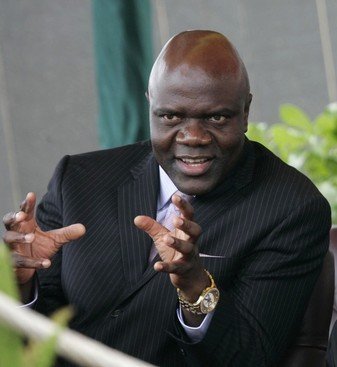
 GOVERNMENT is engaging Western countries and international donors to expand humanitarian assistance to include paying salaries to teachers, health workers and other civil servants.
GOVERNMENT is engaging Western countries and international donors to expand humanitarian assistance to include paying salaries to teachers, health workers and other civil servants.
The assistance would come under the banner of “humanitarian aid plus” and will also encompass the revival of university education.Deputy Prime Minister Arthur Mutambara told Zimbabwe Independent that “humanitarian aid plus” was a concept that government was developing with Western countries in order to redress the collapse of the education, health and civil service sectors.
Â
Mutambara said: “It is a concept we are developing to expand humanitarian assistance to include teachers’ salaries, health workers and civil servants’ salaries and the issue of fees in universities. It’s a concept that we are developing and we need support for that.”
Under the scheme government would not only invite aid to deal with issues like cholera and HIV/Aids from donors, but also seek funds to pay civil servants who have since February been earning a US$100 allowance.
Last month, Danish Development Co-operation minister Ulla Tornaes was in Zimbabwe on a fact-finding mission and reportedly told the inclusive government that her country was prepared to pay civil servants for half a year.
Diplomatic sources said the government then asked Denmark to fund the salaries for a year – a request Tornaes said she would forward to her government and parliament for consideration.
- Chamisa under fire over US$120K donation
- Mavhunga puts DeMbare into Chibuku quarterfinals
- Pension funds bet on Cabora Bassa oilfields
- Councils defy govt fire tender directive
Keep Reading
In a written response to questions from the Independent, the European Union (EU) said re-engagement with the government was a joint process and exploratory discussions had been held.
“The re-engagement dialogue will be a joint process that will only take place when the EU and Zimbabwe agree to begin concretely the dialogue,” said EU press and information Officer Josiah Kusena.
Sources said the United States (US) and European countries were holding talks with the new government on the “humanitarian aid plus” scheme.
However, US ambassador to Zimbabwe James McGee yesterday said his government would not finance the payment of civil servants or any other economic programme until there was restoration of the rule of law and upholding of human rights in the country.
McGee said: “It is illegal under the existing laws of the United States to pay salaries to civil servants – we call it budget assistance. I cannot pay a secretary for the Ministry of Health or an economist in the RBZ, I would go to jail for that.
“What we are trying to look at is other ways of helping the government of Zimbabwe like revitalising Harare Central Hospital. The government itself will have to pay its civil servants and I hope it will be able to generate money to pay its civil servants.”
McGee said the inclusive government was not yet working in accordance with the Sadc-facilitated Global Political Agreement signed last September.
“That said, this imperfect union does seem to be working,” he said. “I was talking to a minister earlier today who used the analogy that this was like a train trip from Harare to Bulawayo. Most people thought that we would only be 20 or 30 km outside Harare in the transitional government, but really the minister thinks, and I think he maybe closer to the truth, that they are probably half way to Bulawayo.”
“Things are moving much more rapidly in certain sectors of this agreement but there are other sectors where things are not moving rapidly. Farm invasions and the issue of political activists who are still in jail are outstanding issues that need to be resolved before we can go too much further.”
He said the US would be pleased to see the government taking care of the will and needs of its people.
McGee said: “We have seen a lot of positive things happening … We no longer see the uncontrolled printing of money and the inflation that has been running in numbers that I am not familiar with – quintillions and gazillions.
Last month inflation was -2,5% and that’s very very positive.”EU donors are understood to be setting benchmarks such as an end to farm invasions where further assistance will depend upon progress in halting the disruptions of agricultural disruption.
BY WONGAI ZHANGAZHA











